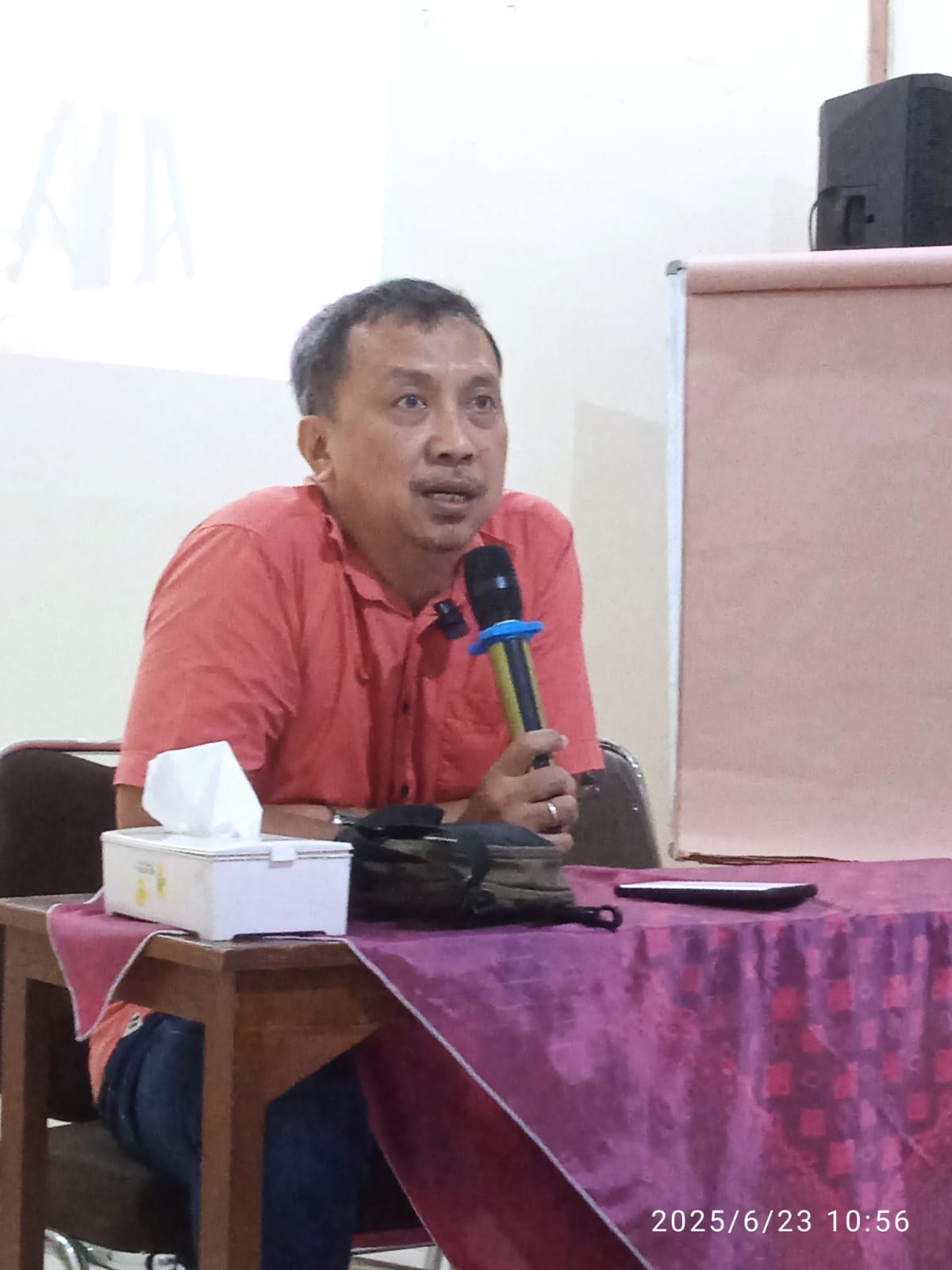Contectual Educationis context-oriented education, which is nothing new as it has been implemented by Islamic Schools to prepare students for life. Other religions have similar education – i.e. Pastoral Schools within the Catholic religion. The base of Contextual Education is students’ experience, not lessons.
Today’s education is oriented towards standard. When a school does not follow the standard, it infringes on the formal system. The subjects are the same across schools, despite differences in the challenges that students in Surakarta face. Indonesia education is a space that marginalizes students from poor families. They are left behind in early education, and they would also be left behind when they enter junior high schools, senior high schools, and universities.
This is the key point made by education expert, Bukik Setiawan – a resource person during critical discussion of humane contextual education conducted by Masyarakat Peduli Pendidikan Surakarta (MPPS) with support from Yayasan YAPHI, at Anawin Hall, Yayasan YAPHI, Jl. Nangka 5, Laweyan Surakarta.
Bukik suggests that government has ignored sub-national authority in education for the last 30 years and one can see the discrepancy. This is evident in the Law on National Education System 2003 that articulated the education objective in terms of individual, not as a national goal. Contextual education should be community-oriented, not individual-oriented.
The current curriculum is oriented towards results. Hence, there is a need to distinguish between education affairs and administrative affairs. This allows contextual education to proceed starting in 1st grade to 5th grade. By 6th grade, students prepare to become “victims” of national exam, which is what tutorial is about, when schools could actually do it.
Opportunities for Contextual Education
The government may implement standard contextual education – in Consolidation of Pancasila Student Profile (P5). P5 is new, yet there is common misunderstanding that it is a non-skill education.
There is also Project-based Learning (PJBL) cented on students and local content. PJBL may be geared towards encouraging/engaging students in traditional market re-vitalisation by doing small research such as parking system and design. This means that local programs can become the conversation theme for the community, as students conduct interviews, hence directly encouraging people’s participation and synchronise it with local government priority programs. This allows for an opportunity to insert local content and extracurricular despite the limited time available.
In discussion session, a participant from Student Executive Board of FKIP UNS asks a question regarding education as victim of politics. The resource person answers that education needs to participate in politics because by doing so, it is able to contextual education may get funding, as well as approval from parents. This can be done via local development deliberation.
One remaining issue is that the biggest budget goes to pay the teachers. The large budget needs to correlate to the impacts – in terms of human development index (literacy and numeracy).This is a tough fight and involves plenty of negotiation - - for example, many teachers and schools are fixed on results, thus making it difficult for synergy.
Parents are other influential component particularly in cities – Surakarta, for example, has high aspiration leading to intensive debates. There is n competency for parents who are not trained to give education, making it difficult for city education offices to engage. (Renny Thalita/Ast)












